Hotels & Accommodations
The best luxury hotels in Bangkok, Thailand
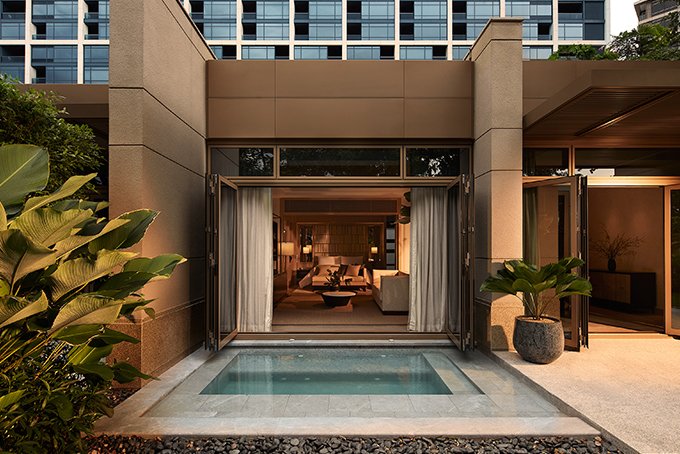
Bursting with vibrant culture, delicious food and a thriving retail landscape, Bangkok has long been one of the top travel capitals in Asia for good reason. What the recent few years have bestowed upon us, however, is a luxury hotel scene so fertile—it is the veritable gift that keeps on giving.
Post-pandemic, the city has seen a slew of top hospitality brands from around the globe opening palatial properties on its shores, from stalwarts like Capella Bangkok (presently the top name on The World’s 50 Best Hotels list) to boutique darlings like The Standard Bangkok Mahanakhon. Most recently, another storied brand has unveiled a highly-anticipated address: Aman Nai Lert Bangkok, an art-filled oasis bringing a dose of serenity to the city bustle.
Each hotel on this list boasts a diverse set of offerings—from astounding dining experiences to exceptional wellness programmes—but what they share in common is exceptional service, cementing Thailand’s well-deserved reputation as the land of warmth and hospitality. When you book a stay at any one of these addresses, what you can expect is a hotel experience as flawless as it gets: kindred service that makes you feel impossibly at home, thoughtful design perfectly balancing comfort and opulence, and an ideal vantage point to everything Bangkok has to offer. When in one of the greatest cities in the world, there is little more we could think to ask for.
Courtesy of Four Seasons Hotel Bangkok
1 / 6
Four Seasons Hotel Bangkok
Situated right in the heart of Bangkok’s arts district and overlooking the serene Chao Phraya river is the Four Seasons Hotel Bangkok, an urban sanctuary perfect for the creatively-inclined voyager. Artwork frames every wall, with large-scale installations featuring river-inspired settings anchoring main sections of the lobby. Beyond the spectacular collection of masterpieces on display (amassed by the hotel’s famed interior designer Jean-Michel Gathy), the hotel also maintains a symbiotic partnership with Bangkok’s Museum of Contemporary Art, curating rotating exhibitions featuring contemporary Thai artists in the hotel’s very own art wing.
Negative space is utilised beautifully within the building’s architecture, and guest rooms are suitably enormous, with windows stretching from the floors to the tall ceilings and offering unblocked river views. The most exciting dining concept here is Chinese restaurant Yu Ting Yuan. Specialising in classic Cantonese cuisine, the restaurant is a destination in and of itself, with reservations often booked out months in advance.
Courtesy of Dusit Thani
2 / 6
Dusit Thani Bangkok
The local legend makes a comeback—Dusit Thani, which opened as one of the very first luxury hotels in Bangkok back in 1970, now reveals a brand new facelift. Joining hands with André Fu Studios, the hotel sparkles with an old world charm. Colours of celadon green, sage and champagne hues ground the most part of the interiors, with gold finishings as luxurious accents. Traces of Thai history and the original hotel’s legacy can be spotted within the hotel, from the lobby arched like a pavilion to a nine-level waterfall garden flanked by 50-year-old trees. But what truly is astounding about Dusit Thani’s reopening stands to be its bigger rooms, with each nook offering expansive views of Lumpini Park, lined by cushy day-beds that are inspired by traditional Thai salas.
To unwind, head to the ultimate resting place, known as Devarana Wellness, where one can get a relaxing massage and a sound bath session conducted in a cocoon-shaped room. Of course, when in a towering building, the rooftop bar is always a good idea. At Dusit Thani, there are two: the 1970 Bar and Spire Rooftop Bar that will grant exquisite panoramas of the city’s glittering skyline.
Courtesy of Aman
3 / 6
Aman Nai Lert Bangkok
By design and placement, finding a place that could echo the all-immersive Aman standard in the busy capital of Thailand had to be quite the feat. And fortunately, the name Nai Lert would hold the right cards. Right next to the verdant Nai Lert Park, Aman Nai Lert Bangkok is a vision that brims with cultural inflections—with a vast and thoughtful art collection, each bespoke piece produced by local craftsmen.
Inside each suite, lies an expanse of space bathed in neutrals and poised like a personal sanctuary—from the gigantic bath to the luxurious walk-in closet cum lounge. Whilst at the Aman Wellness Centre, is where every fitness and wellness junkie will be thoroughly sated (think a state-of-the-art-gym, Pilates classes, cold plunge and more)—especially with the addition of a relaxing massage that heeds ancient Thai traditions at the Aman Spa. When it comes to the food, make sure to never miss a meal at the hotel. Think authentic Thai cuisine served from morning to night, as well as a decadent range of Italian and Japanese specialities at its exquisite restaurants.
Courtesy of The St. Regis Bangkok
4 / 6
The St. Regis Bangkok
Standing out amongst the Thai capital’s many luxury hotels is no easy feat, but The St. Regis Bangkok achieves this through genuine and warm hospitality, world-class amenities and an incredible slate of dining options—from all-day dining destination Viu, which serves up one of the best breakfast spreads in the city, to one-Michelin-starred Igniv Bangkok, the hotel’s brilliant fine-dining establishment.
The hotel’s stellar location is certainly a plus too. Bangkok’s biggest shopping district is a short walk away, as is the picturesque Lumpini Park. The hotel also has direct access to the BTS Skytrain network, so exploring the city is as convenient as ever. And to unwind after a long day of shopping, drop by the hotel’s spa and aesthetics clinic Longevity Hub by Clinique La Prairie—the acclaimed brand’s first flagship outside Europe. The relaxation areas here are world-class, equipped with amenities such as Thai herbal steam rooms, vitality pools and a foot reflexology water walk. A wide range of massage treatments and facial experiences await, the latter of which makes use of the brand’s premium skincare products. It’s a sanctuary of rejuvenation so blissful that you’ll find yourself struggling to leave.
Courtesy of The Standard
5 / 6
The Standard Bangkok Mahanakhon
One of the hippest hotels in Bangkok, The Standard boasts stellar design and cultural programming anchored by delectable food and drink hotspots. Castleton green and rosewood shades fill the space alongside leafy foliage from the hotel’s potted plants. Its shelves act as a gallery of sorts, with artful, whimsical objects made by Thai artisans on display. Rooms are dressed in neutral tones with pops of rust on the bed, and also feature a dusty pink bathroom and rain shower. As extensions of your fanciful home away from home, they offer every luxury amenity you will need.
Located in the Ole Scheeren-designed Mahanakhon Tower, ducking out of the hotel for a Michelin-starred meal or the city’s famed crab omelette is an easy ride away, but staying in for your meals and avoiding Bangkok’s notorious traffic is a wondrous option too.
Courtesy of Capella Bangkok
6 / 6
Capella Bangkok
There are few addresses in the city more staggering than Capella Bangkok, Thailand’s first outpost of the Singaporean hotel brand. Claiming the top spot on The World’s 50 Best Hotels list in 2024, the grand dame property is surrounded by lush gardens and the serenity of the Chao Phraya river. Rooms come spacious and dripping with opulence, while riverside villas and suites boast private pools and riverside views that will make it nearly impossible to tear yourself away to explore the city.
What makes a stay here truly memorable are the Capella Culturalists, or personal butlers, who are on hand around the clock to provide anything guests could possibly need or want: custom itineraries, restaurant recommendations or even a dramatic retelling of Thai history. Remarkably intuitive and knowledgable, these custodians of hospitality take good service to a whole new level—they might just spoil you for life.
Hotels & Accommodations
US restricts staff from visiting Karachi hotels over security threat
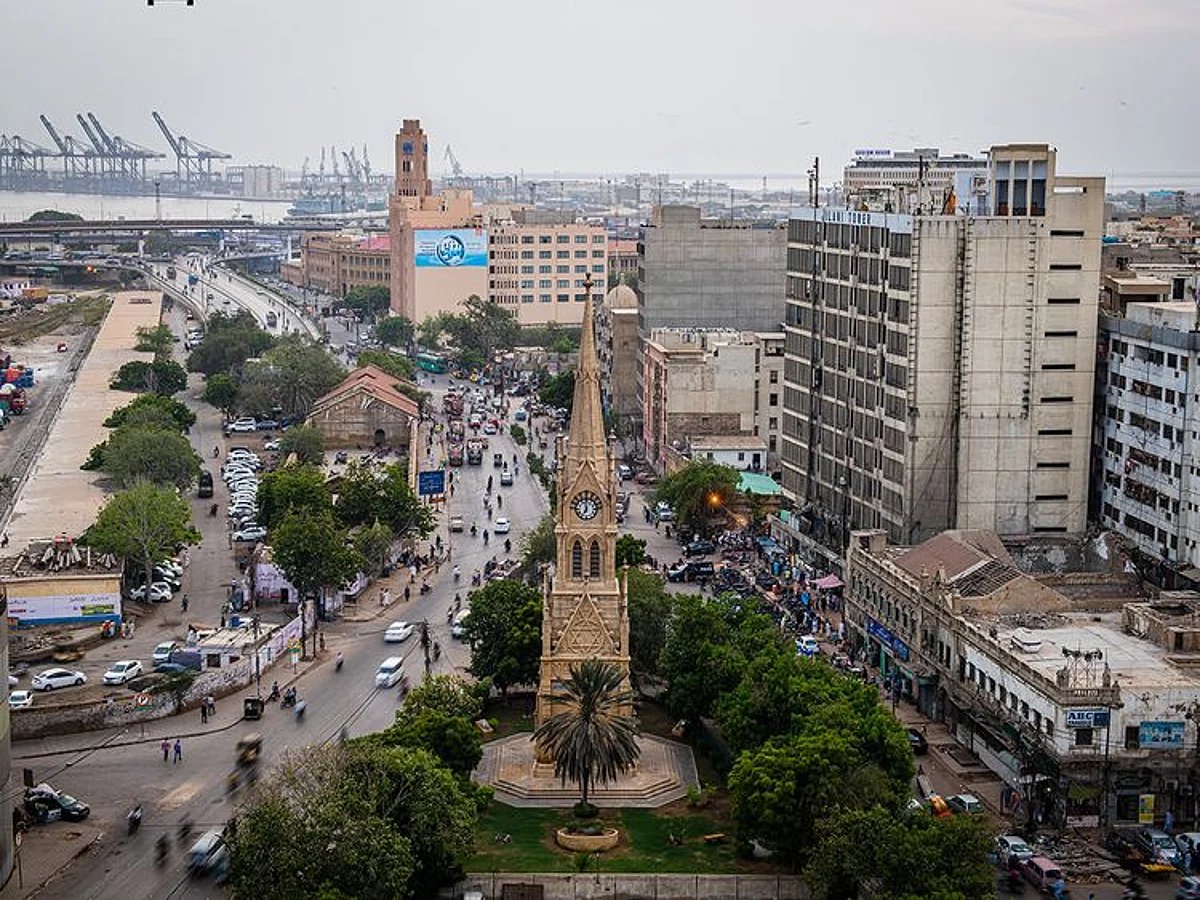
The United States has temporarily restricted its government personnel from visiting upscale hotels in Karachi, Pakistan, following a reported threat targeting these establishments. The move was confirmed in a security alert issued Friday by the US State Department.
Hotels & Accommodations
Park Hotels & Resorts Embraces Strategic Capital Management To Navigate Market Challenges And Drive Growth
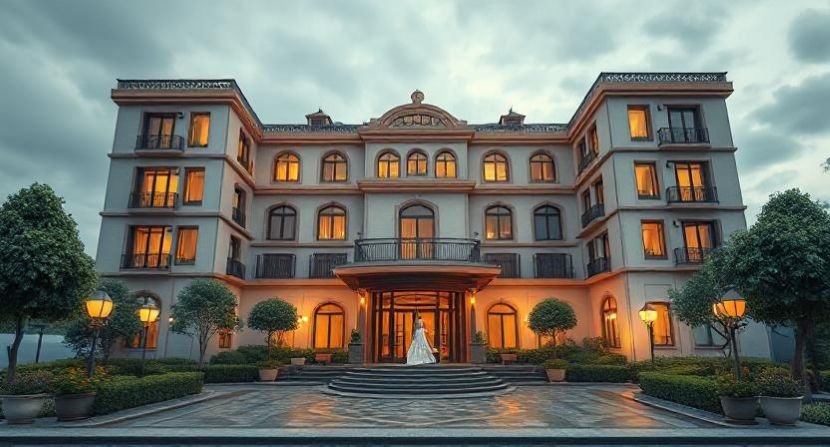
Sunday, August 3, 2025
Amid labor shortages, inflationary pressures, as well as evolving consumer preferences, Park Hotels & Resorts has invested in disciplined capital management. This year, the company’s asset rationalization focus and reallocation of capital has placed it well for both long-term value creation and short-term challenges.
From an investor’s standpoint, the company’s approach invites two critical considerations: first, whether its focus on value-add refurbishments and fine-tuning the asset mix can generate durable, above-average returns; and second, what unique variables set Park apart in an environment where rivals are increasingly squeezed by narrowing spreads.
Focusing Capital On High-Impact Growth
Park’s 2025 strategy is rooted in divesting non-core assets to fund more valuable projects. The 80 Million USD sale of the Hyatt Centric Fisherman’s Wharf in San Francisco, achieved with a remarkable 64x 2024 EBITDA multiple, exemplifies this approach.
This sale aligns with the company’s broader target of disposing of 300–400 Million USD in assets during 2025. If achieved, this could reduce net debt of 3.7 Billion USD by a significant margin, freeing up funds for reinvestment in high-potential properties.
In 2024, Park sold three hotels for 76 Million USD, achieving a trailing EBITDA multiple of 12.2x, including capital expenditures. The proceeds from these sales are being reinvested into major renovations at select properties. For example, the Royal Palm South Beach Miami is undergoing a 103 Million USD renovation to modernize 393 rooms and add 11 new ones.
While this project will impact Hotel Adjusted EBITDA by 17 Million USD in 2025, management anticipates a post-reopening return of 15–20% by 2026. Similar investments are planned for properties in Hawaii and New Orleans, aiming to capitalize on markets that are still recovering.
Strengthening The Balance Sheet And Rewarding Shareholders
Park’s capital reallocation strategy is focused on maintaining a balanced, disciplined approach to debt and liquidity. As of mid-2025, the company reported 1.3 Billion USD in liquidity, including a 950 Million USD revolving credit facility.
This flexibility provides the company with the ability to meet near-term obligations and prepare for the refinancing of a 1.3 Billion USD mortgage on its Hilton Hawaiian Village Waikiki Beach Resort in 2026.
Park’s commitment to shareholder value is evident in its repurchase of over 15% of its outstanding shares since 2022. In Q4 2024 alone, the company spent 26 Million USD on buybacks. Additionally, its quarterly dividend of 0.25 USD per share (yielding a 9% annualized return as of July 2025) further emphasizes its focus on returning capital to shareholders.
This combination of deleveraging and returning value positions Park as a growth and income hybrid in an industry where many peers prioritize one over the other.
Premium Assets In Gateway Cities
Park has carved out a unique position by focusing on premium properties in high-demand urban and resort locations. The acquisition of Chesapeake Lodging Trust in 2019, which added 18 upper-upscale hotels to its portfolio, diversified Park’s brand mix to include Marriott, Hyatt, and IHG properties.
This strategic move allowed Park to move beyond its Hilton-centric roots and tap into resilient market segments. In 2025, Park’s strategy is already paying off. Urban properties like the JW Marriott San Francisco and Hilton New York Midtown saw RevPAR growth of 17% and 10%, respectively, in Q2 2025.
These results contrast with broader industry trends, especially in Hawaii, where labor actions and slow international recovery have put pressure on RevPAR. By concentrating on high-traffic urban hubs, Park mitigates risks and benefits from the long-term appeal of premium accommodations.
Competing With Technology And Personalization
Park’s strategy aligns with key industry trends. Competitors like Hilton and Marriott are leveraging AI-driven automation and sustainability initiatives to reduce costs and enhance guest experiences. Park is following suit with its 103 Million USD renovation of the Royal Palm South Beach, which integrates smart technology and energy-efficient infrastructure.
Moreover, Park’s emphasis on personalized guest experiences, including tailored amenities and data-driven service, ensures it can compete with boutique operators targeting high-net-worth travelers.
Despite these advancements, the company’s strategy does face risks. The 17 Million USD EBITDA disruption from the Royal Palm renovation highlights the challenges of capital-intensive projects. Moreover, Park’s reliance on gateway markets makes it vulnerable to macroeconomic shifts, such as a global recession or a slowdown in international travel.
Balancing Risks And Rewards
Park’s strategy offers a promising long-term value proposition for investors. Its disciplined approach to asset rationalization, combined with a focus on high-return renovations and shareholder value, creates a self-reinforcing cycle: asset sales fund growth, growth drives cash flow, and cash flow enables further value creation.
Key metrics to watch include the success of its 2025 disposal targets, the post-renovation performance of the Royal Palm South Beach, and the refinancing of the Hilton Hawaiian Village mortgage.
Historical performance data also provides insights into how the stock has reacted around earnings releases. From 2022 to present, Park’s stock has generally shown positive short-term movement following earnings reports, with a 42.86% win rate over three days, a 35.71% win rate over ten days, and a 50% win rate over 30 days.
A Clear-Cut Strategy For Sustained Shareholder Value
Park Hotels & Resorts field-tested approach to asset rationalization and smart capital reallocation signals it is playing the long game even through immediate turbulence. Renovation-season noise and one-time EBITDA hits are no surprise to management, and the forward-looking balance sheet, on track to shed low-yielding assets in favor of a streamlined, higher-margin lineup, should firmly protect long-term profit expansions.
Coupled with steadfast discipline on non-essentials, the Company is trading near-term noise for a cleaner, higher-velocity revenue machine. Investors with a 3 to 5 year horizon should keep the name on the watch list, even look to nudge underweights, confident in the underappreciated optionality now pricing in a cautious market.
Hotels & Accommodations
Sustainable Tourism in Greece: Hotels Invest in Green Solutions to Cut Environmental Impact
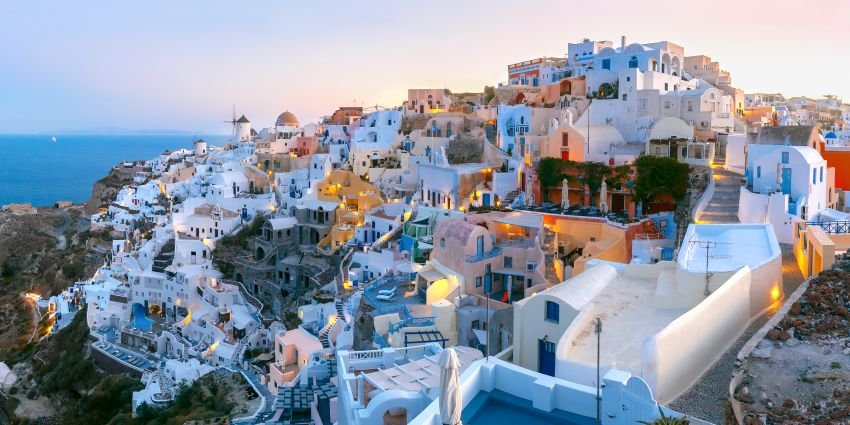
Sunday, August 3, 2025
The tourism sector of Greece, which is well-known for its stunning islands and historic sites, is presently going through significant change to bring about green hospitality. The industry has been compelled to reconsider its operations due to the strains of the energy and climate crises as well as the worldwide need for sustainable practices. Greece‘s hospitality sector, which includes both big hotel chains and smaller lodging establishments, is being urged to lessen its environmental impact as environmental concerns gain international attention. The focus is on investing in energy-efficient solutions and implementing green technologies, which not only solve environmental issues but also increase the sector’s economic resilience. With an emphasis on long-term sustainability rather than immediate profits, this change is a fundamental one.
Sustainability: The Key to Resilience in Greek Hospitality
Greek tourism is increasingly shifting from a mass tourism model to a more sustainable approach, focusing on providing high-quality experiences to a smaller, environmentally conscious group of travelers. The new tourism model emphasizes energy efficiency, infrastructure modernization, and the reduction of operational costs. By embracing sustainable practices, hotels can offer greener, more responsible services while attracting eco-conscious travelers who are more willing to pay a premium for environmentally friendly options. Moreover, this approach helps to protect local ecosystems and communities, making tourism more resilient to global crises and energy shocks.
Energy Efficiency: Significant Investments in Green Solutions
The shift towards sustainability has prompted significant investments in energy-efficient technologies. In 2024 alone, the Greek hotel sector invested more than 1 billion euros, with nearly 20% of this sum allocated to projects aimed at improving energy efficiency. These projects included the installation of solar panels, heat pumps, and smart energy systems. Such upgrades are essential for lowering energy consumption, reducing carbon footprints, and ultimately lowering operating costs for hotels. With global energy costs rising, these investments have proven to be a strategic move, offering long-term financial benefits in addition to environmental advantages.
The need for energy-efficient solutions is particularly critical as Greece faces challenges related to climate change. The Mediterranean region is experiencing rising temperatures and more frequent extreme weather events. In response to this, many hotels are increasingly adopting green technologies that help mitigate the impacts of climate change. Solar energy, for instance, provides a sustainable way for hotels to meet their electricity needs while reducing their reliance on fossil fuels. These energy solutions are not only good for the environment but also help hotels reduce costs, making them more competitive in the global market.
Technological Upgrades: A Game-Changer for Greek Hotels
In addition to investing in renewable energy sources, Greek hotels are also embracing technological innovations aimed at improving their overall sustainability. Modernization of hotel infrastructure plays a crucial role in making the industry more energy-efficient. For instance, the use of smart energy management systems allows hotels to monitor and optimize energy usage in real-time. This helps reduce energy waste and ensures that heating, cooling, and lighting systems are operating efficiently.
Better insulation and the installation of modern HVAC (Heating, Ventilation, and Air Conditioning) systems have also been identified as effective ways to reduce energy consumption. Studies show that energy use in hotels can be reduced by as much as 72% through these upgrades. By enhancing insulation and improving system efficiencies, hotels are able to lower their environmental impact while enhancing guest comfort.
The National and Kapodistrian University of Athens is playing a pivotal role in this green transition. The university’s Building Environmental Research Group is at the forefront of research on how hotels can integrate sustainable practices into their operations. This research is helping to shape the future of green hospitality in Greece, with a focus on energy-efficient solutions that can reduce costs and benefit both the environment and businesses.
Dr. Vasilis Ntouros from the university’s research group has highlighted the importance of such upgrades, noting that with the right technologies in place, hotels can significantly cut down on their energy use. His research suggests that energy consumption in hotels can be reduced from as high as 430 kilowatt-hours per square meter annually to under 120 kilowatt-hours simply by installing modern insulation, HVAC systems, and smart energy management.
Challenges in the Transition to Green Tourism
Despite the significant progress, there are still challenges in fully transitioning to a green tourism model. One of the major obstacles is the uneven adoption of sustainable practices across the industry. While large hotel chains are increasingly investing in green technologies, smaller hotels may face difficulties due to financial constraints or lack of knowledge about available solutions.
Currently, only 32% of Greek hotels systematically monitor their water usage, and just 25% have recycling programs in place. These statistics highlight the need for further action to ensure that sustainability becomes a widespread practice across the hospitality industry. The limited use of sustainable practices in some areas is concerning, particularly in popular island destinations where resources are scarce and the effects of climate change are most pronounced.
The Role of Government and Funding in Sustainability
To address these challenges, the Greek government, in partnership with European funding bodies, is offering a variety of financial support mechanisms to help hotels transition to more sustainable models. European Union and national funds are available to help hospitality businesses invest in energy-efficient technologies, reduce their carbon footprint, and improve waste management practices. These financial incentives are essential for encouraging hotels to adopt sustainable solutions and ensuring that the hospitality sector remains competitive in the global market.
In addition to financial support, the government is also providing educational resources and training to help hotel owners understand the importance of sustainability and how they can implement green technologies effectively. This support is crucial for creating a more sustainable tourism industry in Greece, and it helps to build the knowledge base required for long-term success.
New Hotel Classification System: Institutionalizing Sustainability
In a further step towards ensuring sustainability in Greek tourism, the Hellenic Chamber of Hotels, in collaboration with the Ministry of Tourism and the Technical Chamber of Greece, is developing a new hotel classification system based on environmental performance. This new classification will allow hotels to be rated according to their sustainability practices, encouraging more businesses to adopt green technologies and sustainable practices.
This new system will help raise awareness about the importance of sustainability in the hospitality industry and will create a framework for measuring and rewarding environmental performance. By offering incentives to hotels that meet high sustainability standards, the government is helping to foster a greener, more responsible tourism sector.
Conclusion: A Future of Sustainable Greek Tourism
The transition to sustainable tourism in Greece is not just an environmental necessity but also an economic opportunity. As the world faces the challenges posed by climate change and energy shortages, Greece’s hospitality sector is leading the way by embracing energy-efficient technologies, modernizing infrastructure, and adopting green practices. With continued investment, government support, and the pioneering research from institutions like the National and Kapodistrian University of Athens, Greece is well-positioned to become a global leader in sustainable tourism.
As the tourism industry continues to evolve, sustainability will play a central role in shaping Greece’s future as a travel destination. By fostering greener practices, the country will ensure that its rich cultural and natural heritage is preserved for future generations, while also providing travelers with the opportunity to experience Greece in a more environmentally responsible way.
-

 Brand Stories2 weeks ago
Brand Stories2 weeks agoBloom Hotels: A Modern Vision of Hospitality Redefining Travel
-

 Brand Stories1 week ago
Brand Stories1 week agoCheQin.ai sets a new standard for hotel booking with its AI capabilities: empowering travellers to bargain, choose the best, and book with clarity.
-

 Destinations & Things To Do2 weeks ago
Destinations & Things To Do2 weeks agoUntouched Destinations: Stunning Hidden Gems You Must Visit
-

 Destinations & Things To Do1 week ago
Destinations & Things To Do1 week agoThis Hidden Beach in India Glows at Night-But Only in One Secret Season
-

 AI in Travel2 weeks ago
AI in Travel2 weeks agoAI Travel Revolution: Must-Have Guide to the Best Experience
-

 Brand Stories4 weeks ago
Brand Stories4 weeks agoVoice AI Startup ElevenLabs Plans to Add Hubs Around the World
-

 Brand Stories3 weeks ago
Brand Stories3 weeks agoHow Elon Musk’s rogue Grok chatbot became a cautionary AI tale
-

 Asia Travel Pulse4 weeks ago
Asia Travel Pulse4 weeks agoLooking For Adventure In Asia? Here Are 7 Epic Destinations You Need To Experience At Least Once – Zee News
-

 AI in Travel4 weeks ago
AI in Travel4 weeks ago‘Will AI take my job?’ A trip to a Beijing fortune-telling bar to see what lies ahead | China
-

 Brand Stories4 weeks ago
Brand Stories4 weeks agoChatGPT — the last of the great romantics







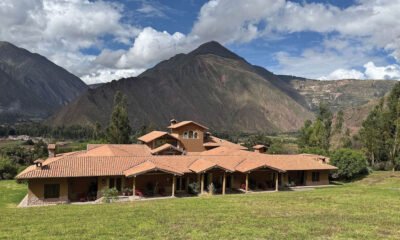





You must be logged in to post a comment Login